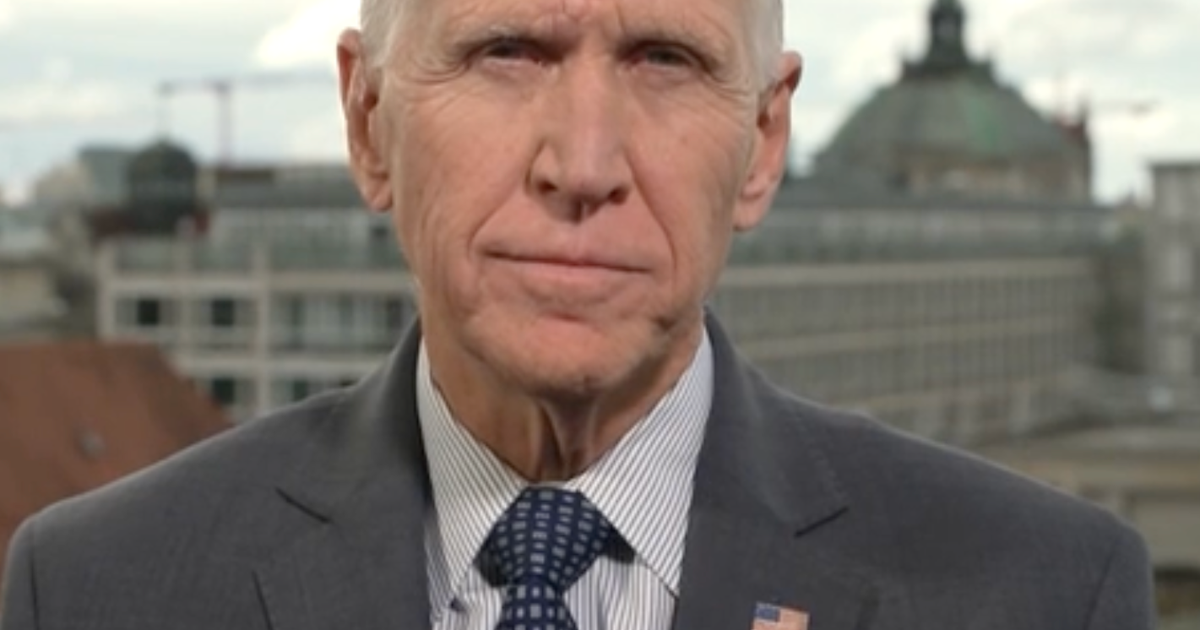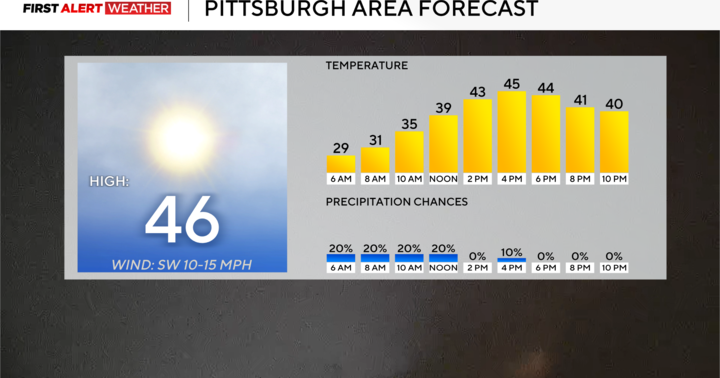Transcript: Dr. Scott Gottlieb on "Face the Nation," November 28, 2021
The following is a transcript of an interview with former FDA Commissioner Dr. Scott Gottlieb that aired Sunday, November 28, 2021, on "Face the Nation."
MARGARET BRENNAN: We go now to Dr. Scott Gottlieb, he's a former FDA commissioner and current Pfizer board member. He joins us from Westport, Connecticut, this morning. Good morning to you, doctor.
DOCTOR SCOTT GOTTLIEB: Good morning.
MARGARET BRENNAN: There is nothing short of panic, and I'm hoping you can give us some perspective here. The W.H.O. and the NIH say that this variant appears more transmissible. Do you have any indication that it's more lethal or that it makes people more ill?
DR. GOTTLIEB: Not- not right now, the three critical questions right now is first, is this more virulent? So, to your question, is this making people more ill? There's no indication that it is. And in fact, there's some anecdotal information off of physicians in South Africa that this could be causing mild illness, though that could be an artifact of the fact that the initial cases seem to have been clustered in younger people, perhaps in outbreaks around the universities. The second critical question is does this escape immunity? And this is the question that has people concerned because when you look at the genetic sequence of this new variant, it has a lot of mutations that we know correlate with escape from immunity that's conferred by prior infection or by the vaccines. But then the third critical question is, does that escape from immunity increase its transmissibility? And there's an assumption right now that it does. We don't have a firm answer to that question. But even if its ability to escape the immunity that we've acquired from prior infection of vaccines does make it more transmissible in certain circumstances, the question here is going to be whether or not a fully boosted individual is someone who's had three doses of vaccine has good protection against this variant. And right now, if you talk to people in vaccine circles, people who are working on a vaccine, they have a pretty good degree of confidence that a booster vaccine so three full doses of vaccine is going to be fairly protective against this new variant. The other critical question we're going to need to answer is whether or not someone who has immunity from prior infection from Delta also has good protection against this new variant. If those two things hold true, if someone who's been infected with Delta is well protected from this and someone who is fully boosted is also well protected from this, that could be a pretty good backstop from this becoming really epidemic in the United States.
MARGARET BRENNAN: You're talking about vaccine makers, Moderna's president told the New York Times, "this is the highest level of alert we've ever been on so far. But it'll take weeks to know before the vaccine is actually known to be effective or not." From what you've seen, and we've mentioned, you're on the board of Pfizer, what do you know?
DR. GOTTLIEB: Well, look, people close to this who are starting to do modeling work, so we don't have data from certainly clinical data, and we don't even have data from test tube studies. But people who have looked closely at this sequence and at the protection offered by the vaccine- now remember that the third dose of the vaccine provides a much broader level of immunity. So, it's not just more antibodies that you develop, but you develop antibodies against more parts of the virus. Those individuals feel reasonably confident that three doses of vaccine is going to be protective. Now, that could give a really strong impetus to trying to get more people boosted. We're going to have studies out maybe by the end of this week, but certainly into next week where what- what- what scientists are going to do is take the plasma from people who either had two doses of vaccine or had three doses of vaccine or were never vaccinated and just recovered from a Delta infection. And they're going to test that blood plasma against the virus to see if the antibodies in the blood neutralize this virus. Now, I would expect that those studies are going to show that the neutralization against this virus declined substantially. But that doesn't mean that the vaccines won't be effective. Remember, with the old South African variant, which also escaped the vaccines, we saw neutralization decline by two thirds in those studies. But when the vaccines actually were put into the population, the mRNA vaccines were almost equally effective against B.1.351 as they were against the Wuhan variant. So, you could see a decline in neutralization of vaccines will still be effective.
MARGARET BRENNAN: Important point to make there. So, a lot of Americans are getting back on a plane after celebrating Thanksgiving and gathering with their families. What do they need to know about transiting through airports? And should they get tested when they get back off that plane?
DR. GOTTLIEB: Look, I think people should use the same precautions that they were using before. It appears that this has been detected very early in South Africa, and I think it's not that prevalent right now in South Africa. We may be overestimating its prevalence because of the recent uptick in cases in South Africa. There's a presumption that many of those cases are this new variant, but it may well be the case that South Africa is also exhibiting a surge of Delta infections after they relaxed some of their recent mitigation following their big surge of Delta. So this probably isn't that prevalent around the world. I would still exercise the same cautions as before. I think the biggest risk to travelers right now is that given the uncertainty around the world and the fact that countries are reacting so briskly, if you do end up being positive overseas, you could find yourself stuck in a very onerous quarantine--
MARGARET BRENNAN: Yeah.
DR. GOTTLIEB: --relative to where we were maybe one or two weeks ago, because I think countries are behaving with no frills right now and trying to control the spread of this new variant, and they're taking pretty drastic measures in certain cases.
MARGARET BRENNAN: So, the CDC said this variant has not been detected here yet. Your- viewers will hear Dr. Fauci later in the program say that America's surveillance system isn't where it should be. How far behind are we? Is it here already?
DR. GOTTLIEB: Well, it's almost definitely here already, just looking at the number of cases coming off planes this weekend. It's almost a certainty that there have been cases that have gotten into the United States. We're in a much better place now than we were a year ago when B.1.1.7 first arrived, or even when Delta first arrived. We are sequencing about a hundred thousand cases a week, which is very good. It's about 20% of all the diagnosed cases. CDC is also going to set up this week a new surveillance system specifically for this variant, so they had this system in place when B.1.1.7 was becoming epidemic in the spring. Were you able to detect B.1.1.7 on PCR tests, just normal PCR tests that people get at a doctor's office because it had a very specific finding called an S gene dropout, basically, the PCR couldn't detect the S gene because it was so heavily mutated. They- they did away with that surveillance system because B.1.1.7 receipted. They're now going to re-implement that this week, and that should be effective at detecting these cases. So, we do have a pretty robust surveillance system in place right now relative to certainly where we were maybe six months ago.
MARGARET BRENNAN: Well, so the W.H.O said the first confirmed case was Nov 9, as far as they're tracking. What is shutting off travel from southern Africa accomplish if this is already on four continents?
DR. GOTTLIEB: Well, look, I think it's unfortunately very punitive, and we could have accomplished a lot of what we're seeking to accomplish with these restrictions, perhaps by increasing requirements on travelers, requiring that they be vaccinated and also have a negative PCR test in the last 24 hours. You know, these kinds of restrictions are going to reduce introductions that could buy us perhaps a couple of weeks, but we didn't need to close off travel. And unfortunately, we're punishing South Africa for doing the right thing and telling other nations that, you know, who want to sequence strains that they find that we're giving them real disincentive to do that because if they turn over new variants, this is what's going to happen to them. So, this is a bad step, I think, from a policy standpoint.
MARGARET BRENNAN: Another policy question. We heard from our correspondent in South Africa that vaccines are actually widely available there. They're just not being distributed, that there is hesitation. We're hearing from the administration a call for donation of more doses and a call for lifting protections off of vaccine makers. Is that a different solution to the problem that exists?
DR. GOTTLIEB: Well, look, I can tell you that five of the eight countries that now fell under this travel ban imposed by the Biden administration have told Pfizer to either slow down or stop shipping vaccines because they haven't been able to distribute what they've received. That represents about 95% of the population that now falls under these travel bans in-in Africa, it's South Africa, Zimbabwe, Namibia- Namibia, Mozambique and Malawi. And I can also tell you that with respect to South Africa, South Africa has also told J&J and Pfizer, the two companies that are distributing vaccine there, to also throttle shipments or stop shipments because they have an excess of vaccine. They now have 16 million doses in that country that they haven't been able to distribute in a population of 60 million people.--
MARGARET BRENNAN: OK.
DR. GOTTLIEB: Of the 19 million doses that Pfizer has sent- of the 30 million doses Pfizer sent to South Africa, only 19 have been used to date.
MARGARET BRENNAN: OK. It seems like that's a distribution problem, and that's something we're going to have to follow up on. Dr. Gottlieb, thank you so much for your analysis this morning. We'll be back in a minute. Stay with us



